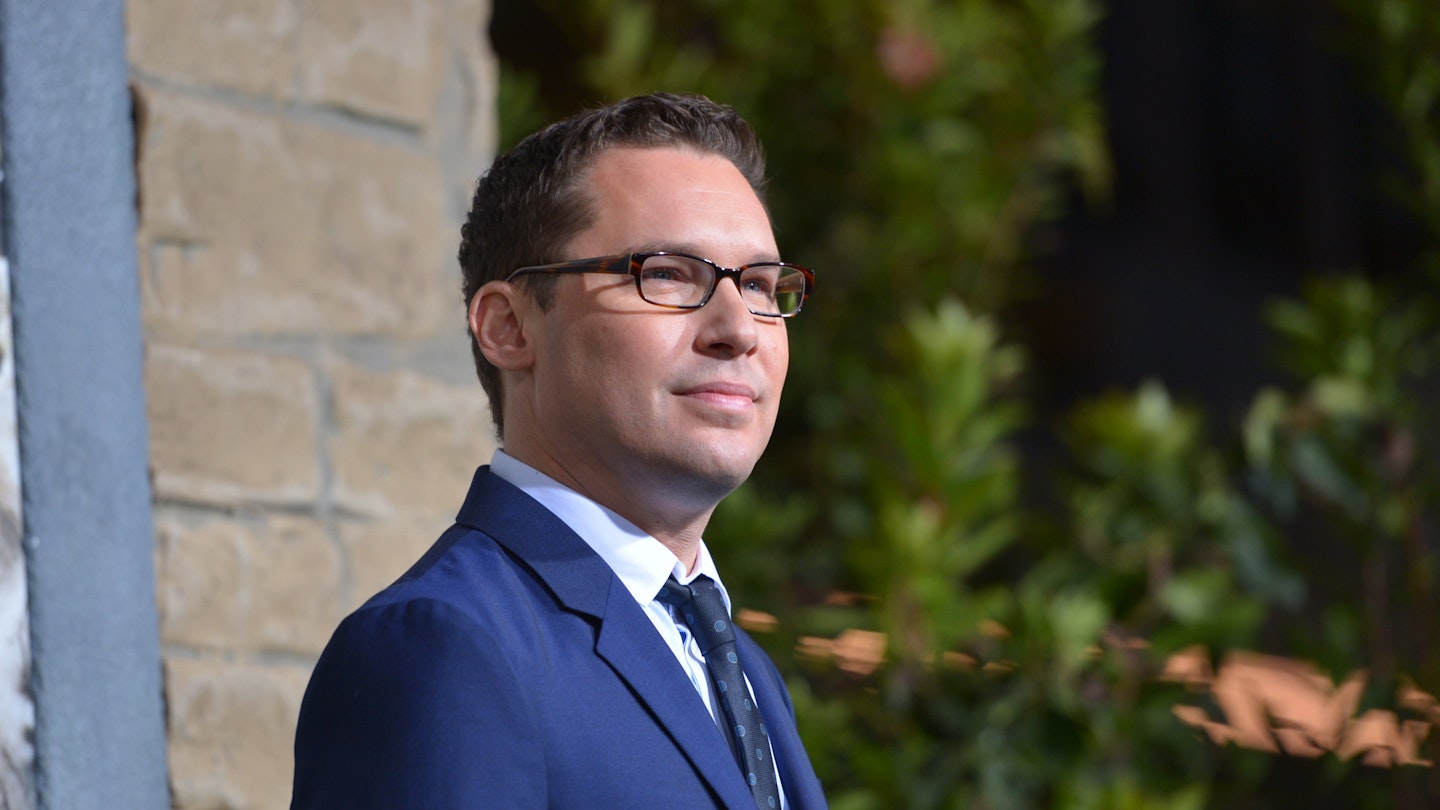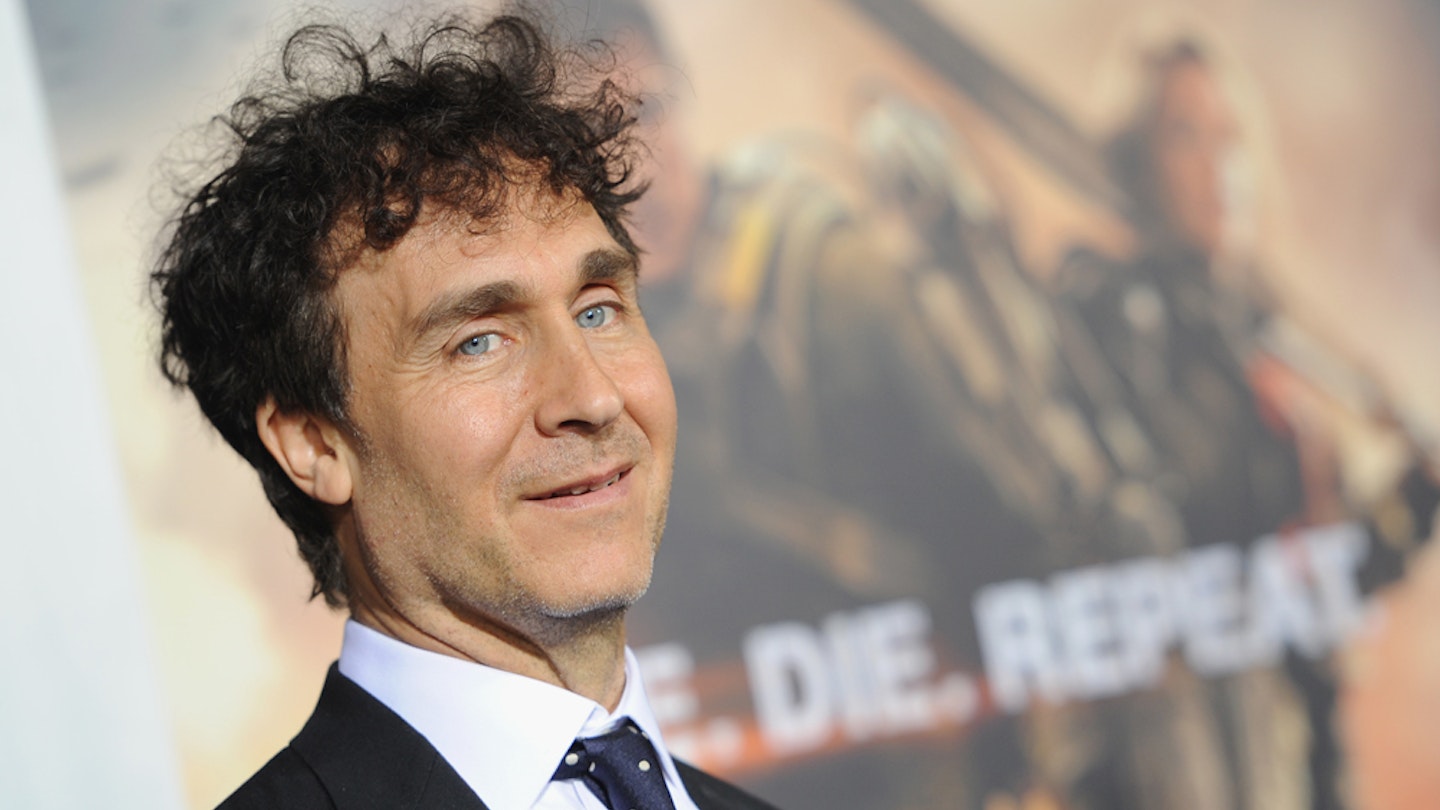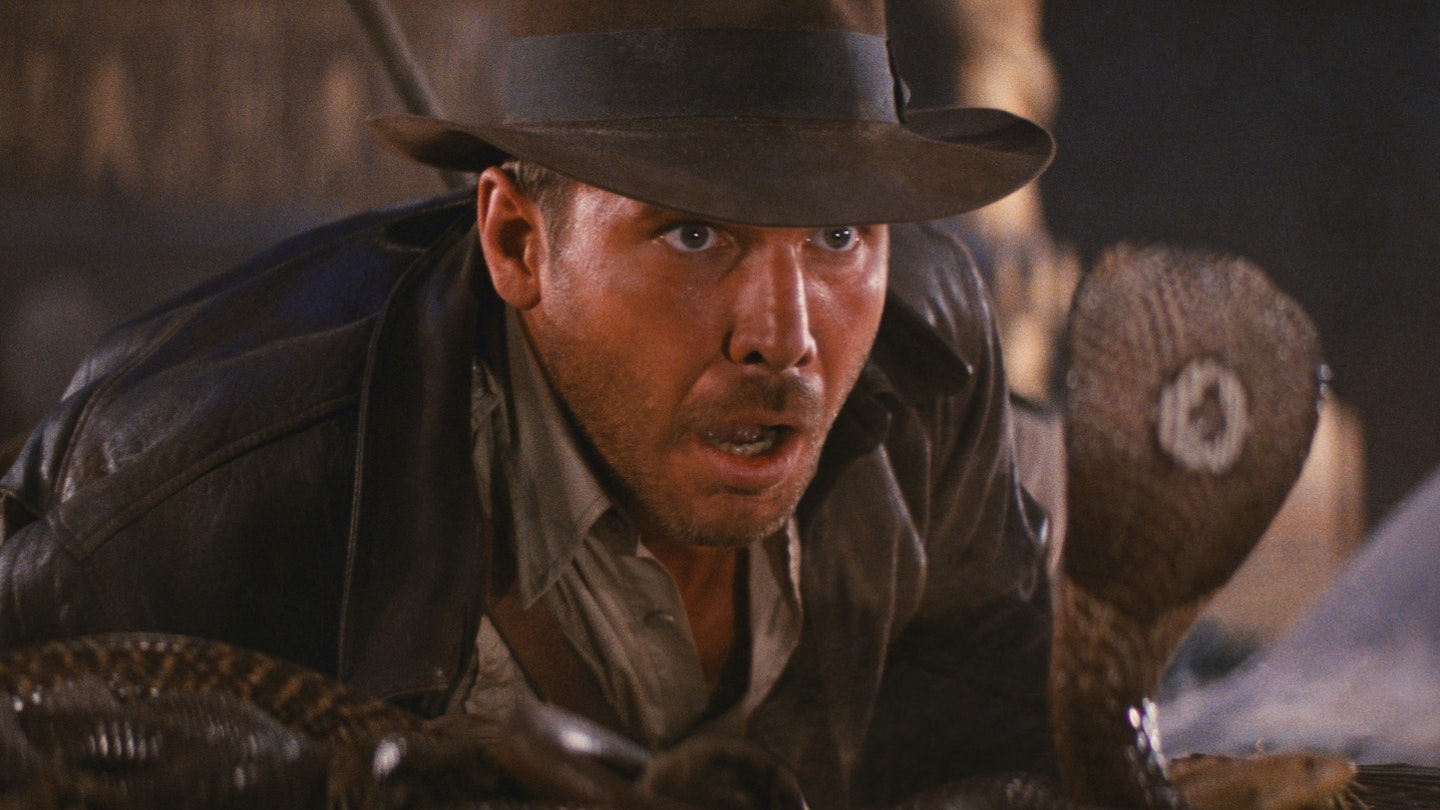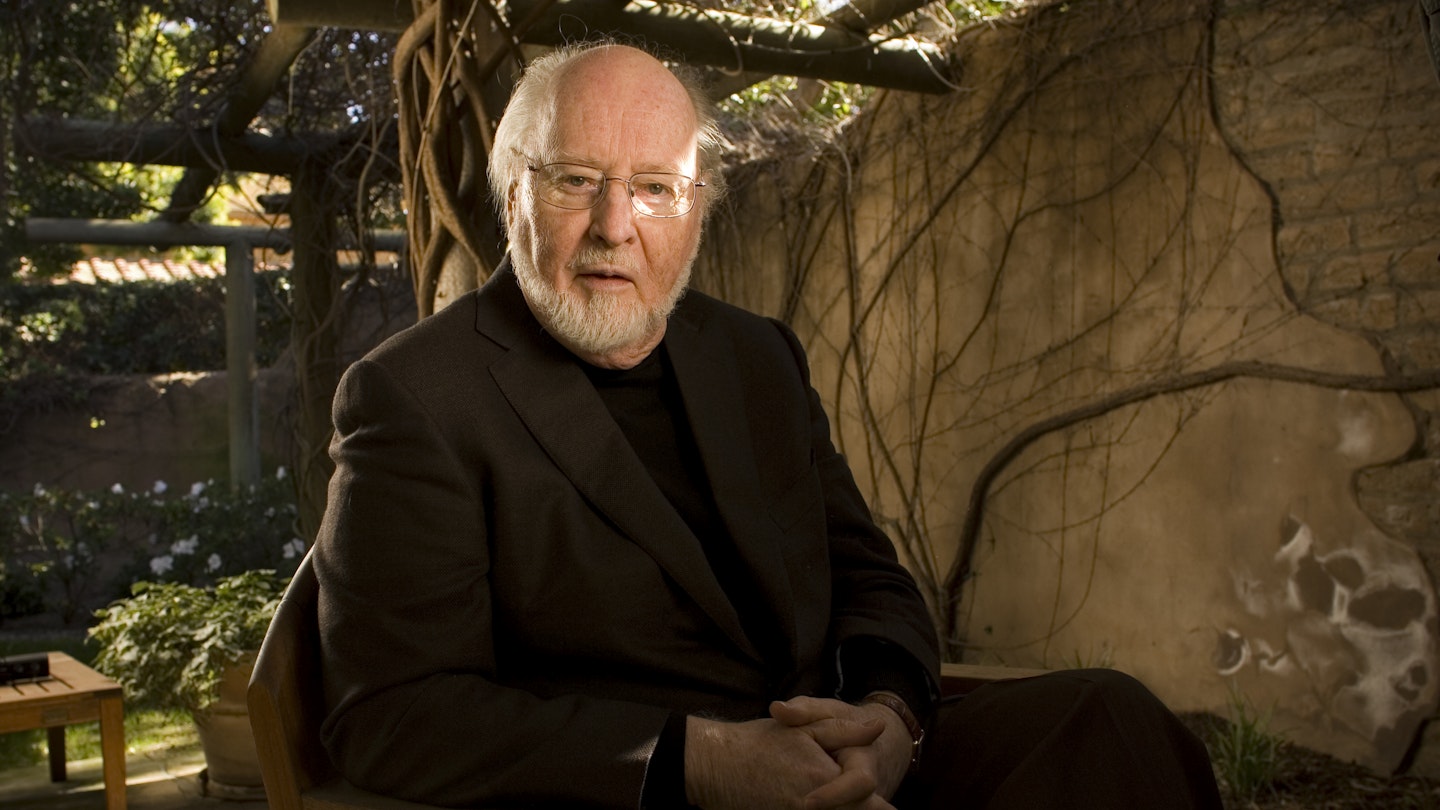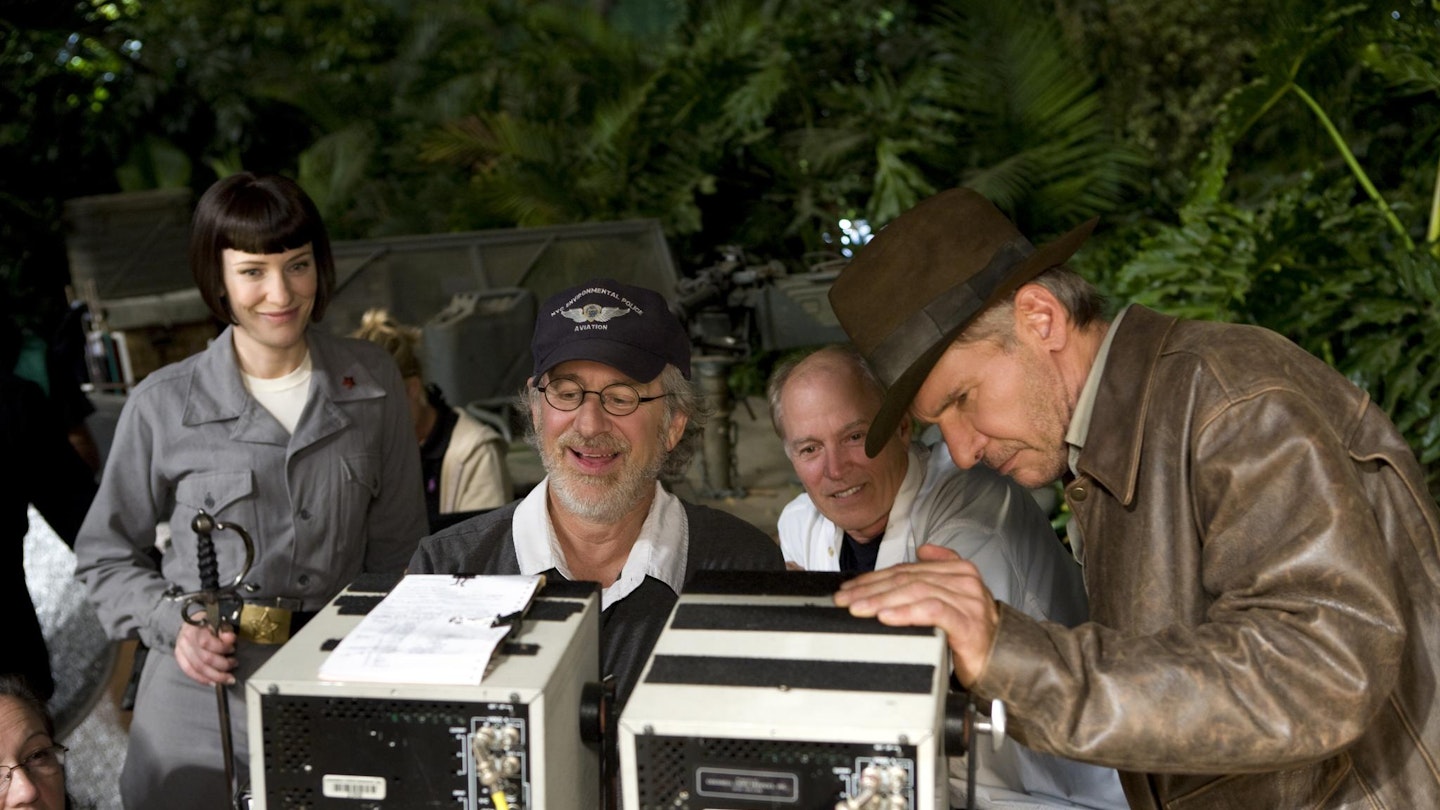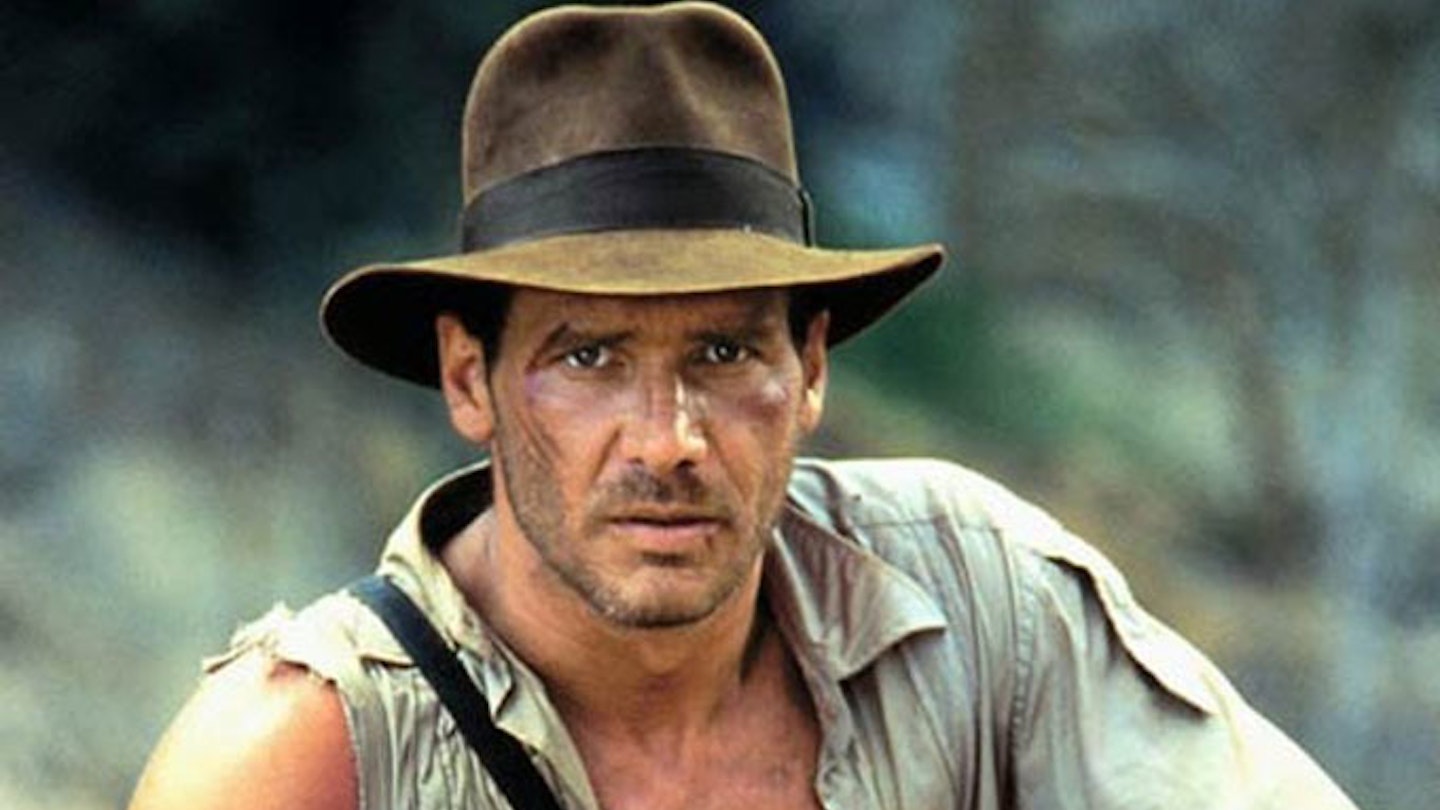That Spielberg came back from the mauling he received over 1941 is remarkable enough. That he came back so quickly — taking just 18 months to put the budget-busting, just-in-profit farce behind him and turn out a film that would hold Paramount's dosh-raking record until the 1994 release of Forrest Gump — is astonishing. That he did so without any perceptible retreat from the wistfully innocent movie vision that had sustained him thus far, and that had irked 1941's critics so violently has the eyes popping and the jaw skimming the carpet in an approximation of one of Tex Avery's cartoon wolves.
That he did so with a 1940s adventure serial homage about a daredevil archaeologist beggars belief. You wouldn't pitch it for all the cocaine in Hollywood, but Spielberg didn't need to. In as deep a career trough as he was ever again to dig, Steven Spielberg got by with a little help from his friends. Or rather, friend.
In fact, Indiana Jones was the invention of George Lucas, conceived back in 1973 and polished by Philip Kaufman, who introduced the main Ark Of The Covenant plotspring: the source of much subsequent bickering over credits and percentages. Summering with Lucas in Hawaii in 1977, Spielberg helped his old UCA pal to bat the idea around. Lawrence Kasdan — a young ad agency hotshot recently turned screenwriter — stepped aboard and by the time shooting began on 1941, Raiders Of The Lost Ark was in presentable shape. Two hundred and 47 days later, with 1941 finally in the can and five times over its provisional budget, it needed to be. Because Spielberg really needed Raiders.
Underway in June 1980, the producing Lucas drew the fire and watched the budget (Spielberg's demands for an extra 1000 or so snakes for the Well Of Souls scene was partly met with bicycle inner tubing). Spielberg, relaxed and having a whale of a time, turned in blinding work. This was spectacular set-piece filmmaking, trumping the breathless treachery/boulder/Belloq/Indians/seaplane opening with a seemingly endless litany of "beat that... oh, you have" moments. For a generation, admittedly of boys, who were 12-15 in 1981, Raiders instantly became the Platonic Ideal of the adventure movie; from John Williams' stirring Raiders march ("Dat-da-da-daaaah! Dat-da-daaaah") to Jones/Ford's frankly offhand treatment of his tomboy love interest Marion (Karen Allen — another in a long line of indistinct Spielberg female "leads") it says "Girls? Forget about them for a year or two..."
Spielberg's entertainment instincts had returned. Pushing for belly laughs in the duff 1941, he'd come across like the college doofuss trying to impress the cool dudes on campus. By comparison, Raiders' humour, though relentless, is a by-product of the storytelling. In one knockout moment, and with comic timing which might have awed Chaplin, Jones faces a scimitar-flourishing Berber, shrugs, pulls his revolver and shoots him dead. Originally storyboarded as a lengthy ding-dong of swordplay and whipwork, the legends are legion as to how Spielberg dreamt it up, some sources alleging that Harrison Ford (it was nearly Tom Selleck — we have CBS-TV and Magnum PI to thank for kiboshing that), suffering from a touch of the Cairo Colon, demanded the scene be cut short before he was caught short. What the legends agree on is that the solution was improvised. And that, of course, it is genius.
The sheer speed of Raiders, its ground-breaking depiction of a sweating hero inclined to smugness but only barely coping with events, its dramatic camerawork and bravura editing: everything conspired to place the audience in the thick of the action and perennially uncertain as to the outcome. Ben Burtt — the sound man who conjured the sizzling travel of the Star Wars blasters by going into the middle of the Mojave desert, hitting a telegraph cable with a hammer and recording the other end — excelled himself. Towards the end, as Jones clings with his whip to the axle of a careering Wehrmacht truck, the vehicle itself seems to take on an air of living malevolence. Burtt did that by mixing a deafening lion's roar into the engine noise. His reward: an Academy Special Achievement Award and a directing slot on Lucasfilm's Young Indiana Jones serial of the mid-90s.
Though some are loath to call Raiders a thoroughbred Spielberg film, they're just being silly. The shadow of Lucas notwithstanding, it so is. There are Nazis in it. There's a big old religious metaphor in it. It's no good at relationships (so "no good" that it doesn't even bother). The number of filmic references in it would embarrass Brian De Palma. It was, and let's not be coy about this, globe-buggeringly successful. And of course there was no director Oscar.
Spielberg was back on track, with one and a half million dollars in the bank, plus percentages
